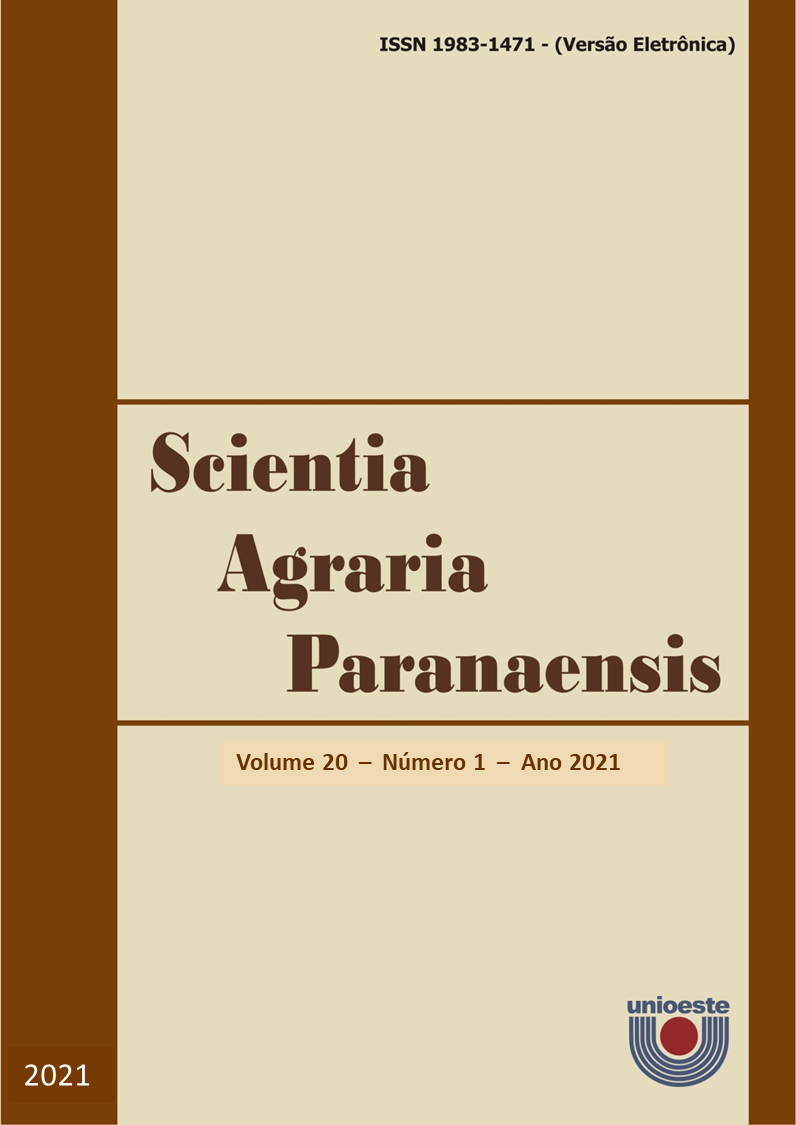Guabiju tree propagation by mini-cutting: ontogeny of the matrix, cutting length and indole-butyric acid
DOI:
https://doi.org/10.18188/sap.v20i1.25600Resumo
Guabiju tree is usually propagated by seeds, although this method presents disadvantages, such as a long juvenile period and great genetic variability, resulting in uneven plants which makes management and the establishment of commercial orchards difficult, in addition to the delay in the production entry. The objective of this work was to test the propagation technique by mini-cutting in guabiju tree. The experimental design used was completely randomized, with a 2 x 2 x 3 factorial (ontogeny of the matrix plant x cut length x IBA concentration), with four replications and 20 mini-cuttings per experimental unit. A hundred and twenty days after the implantation of the experiment, the rooting percentage and callogenesis of the mini-cuttings, the secondary root total length, the aerial part and number of leaves were evaluated. The rooted mini-cuttings were transplanted into larger containers with substrate, and after 60 days of transplantation, their survival percentage was analyzed. The highest rooting percentage was obtained with 0 mg L-1 of IBA with an 57.69% average. Mini-cuttings had a high percentage of survival, with 87.5% being the lowest, presenting a satisfactory result. For the guabiju tree propagation by mini-cutting, it is recommended not to use IBA and adopt a length of four centimeters, using a juvenile matrix plant.
Downloads
Publicado
Como Citar
Edição
Seção
Licença
Aviso de Direito Autoral Creative Commons
Política para Periódicos de Acesso Livre
Autores que publicam nesta revista concordam com os seguintes termos:
1. Autores mantém os direitos autorais e concedem à revista o direito de primeira publicação, com o trabalho simultaneamente licenciado sob a Licença Creative Commons Attribution que permite o compartilhamento do trabalho com reconhecimento da autoria e publicação inicial nesta revista.2. Autores têm autorização para assumir contratos adicionais separadamente, para distribuição não-exclusiva da versão do trabalho publicada nesta revista (ex.: publicar em repositório institucional ou como capítulo de livro), com reconhecimento de autoria e publicação inicial nesta revista.
3. Autores têm permissão e são estimulados a publicar e distribuir seu trabalho online (ex.: em repositórios institucionais ou na sua página pessoal) a qualquer ponto antes ou durante o processo editorial, já que isso pode gerar alterações produtivas, bem como aumentar o impacto e a citação do trabalho publicado (Veja O Efeito do Acesso Livre).
Licença Creative Commons
Esta obra está licenciada com uma Licença Creative Commons Atribuição-NãoComercial-CompartilhaIgual 4.0 Internacional, o que permite compartilhar, copiar, distribuir, exibir, reproduzir, a totalidade ou partes desde que não tenha objetivo comercial e sejam citados os autores e a fonte.


